How casino slot machines work
New casino sites to play real money
In this article, we'll find out what sets the reels in motion in modern slot machines as well as in the old mechanical models. We'll also see what determines the odds of winning on a slot machine and look at some popular variations on the traditional game. The classic slot machine design works on an elaborate configuration of gears and levers. The central element is a metal shaft, which supports the reels. This shaft is connected to a handle mechanism that gets things moving. A braking system brings the spinning reels to a stop, and sensors communicate the position of the reels to the payout system. A coin detector initially registers that a coin has been inserted and unlocks a brake so the handle can move.
How slot machines work
Originally, casinos installed slot machines as a diversion for casual gamers. Unlike traditional table games (such as blackjack or craps), slot machines don't require any gambling knowledge, and anyone can get in the game with a very small bet.
This idea proved to be a monstrous success -- slot machines eventually moved off the sidelines to become the most popular and the most profitable game in town, bringing in more than 60 percent of the annual gaming profits in the united states.
The technology of slot machines has also changed a lot over the years. The classic mechanical designs have been almost completely replaced by computer-controlled machines. But the game has remained the same. The player pulls a handle to rotate a series of reels (typically three) that have pictures printed on them. Winning or losing is determined by which pictures line up with the pay line, a line in the middle of a viewing window. If each reel shows the same winning picture along the pay line, you win (certain single images are sometimes winners as well). The amount you win -- the payout -- depends on which pictures land along the pay line.
In this article, we'll find out what sets the reels in motion in modern slot machines as well as in the old mechanical models. We'll also see what determines the odds of winning on a slot machine and look at some popular variations on the traditional game.
The classic slot machine design works on an elaborate configuration of gears and levers. The central element is a metal shaft, which supports the reels. This shaft is connected to a handle mechanism that gets things moving. A braking system brings the spinning reels to a stop, and sensors communicate the position of the reels to the payout system. A coin detector initially registers that a coin has been inserted and unlocks a brake so the handle can move.
There are any number of ways to arrange these elements, and manufacturers have tried dozens of approaches over the years, so we'll focus on one representative design. The basic design includes three reels mounted on a central shaft. The central shaft also supports three notched discs, which are connected to the three reels. A second shaft below the central shaft supports a kicker, a piece of metal comprising three paddles. The kicker paddles are lined up so they can push against the notches on the three discs. The second shaft also supports a series of connected stoppers, teeth that lock into the notches on the discs.
The kicker and the stoppers are both connected to springs, which hold them in a standby position. The kicker is held in place behind the discs, while the stoppers are held up against the discs, locking them into place.
When you pull the handle on a slot machine, these parts do a lot of work. We'll look at exactly what happens in the next section.
How slot machines work – and why you should think twice before playing them
Author
Professor of casino management, university of nevada, las vegas
Disclosure statement
Anthony frederick lucas receives funding from the sycuan institute on tribal gaming and the university of nevada, las vegas.
Partners
University of nevada, las vegas provides funding as a member of the conversation US.
The conversation UK receives funding from these organisations
The gaming industry is big business in the U.S., contributing an estimated US$240 billion to the economy each year, while generating $38 billion in tax revenues and supporting 17 million jobs.
What people may not realize is that slot machines, video poker machines and other electronic gaming devices make up the bulk of all that economic activity. At casinos in iowa and south dakota, for example, such devices have contributed up to 89 percent of annual gaming revenue.
Spinning-reel slots in particular are profit juggernauts for most casinos, outperforming table games like blackjack, video poker machines and other forms of gambling.
What about slot machines makes them such reliable money makers? In part, it has something to do with casinos’ ability to hide their true price from even the savviest of gamblers.
The price of a slot
An important economic theory holds that when the price of something goes up, demand for it tends to fall.
But that depends on price transparency, which exists for most of the day-to-day purchases we make. That is, other than visits to the doctor’s office and possibly the auto mechanic, we know the price of most products and services before we decide to pay for them.
Slots may be even worse than the doctor’s office, in that most of us will never know the true price of our wagers. Which means the law of supply and demand breaks down.
Casino operators usually think of price in terms of what is known as the average or expected house advantage on each bet placed by players. Basically, it’s the long-term edge that is built into the game. For an individual player, his or her limited interaction with the game will result in a “price” that looks a lot different.
For example, consider a game with a 10 percent house advantage – which is fairly typical. This means that over the long run, the game will return 10 percent of all wagers it accepts to the casino that owns it. So if it accepts $1 million in wagers over 2 million spins, it would be expected to pay out $900,000, resulting in a casino gain of $100,000. Thus from the management’s perspective, the “price” it charges is the 10 percent it expects to collect from gamblers over time.
Individual players, however, will likely define price as the cost of the spin. For example, if a player bets $1, spins the reels and receives no payout, that’ll be the price – not 10 cents.
So who is correct? Both, in a way. While the game has certainly collected $1 from the player, management knows that eventually 90 cents of that will be dispensed to other players.
A player could never know this, however, given he will only be playing for an hour or two, during which he may hope a large payout will make up for his many losses and then some. And at this rate of play it could take years of playing a single slot machine for the casino’s long-term advantage to become evident.
Table games like black jack are not nearly as lucrative – to the casino – as slots. Reuters/toru hanai
Short-term vs. Long-term
This difference in price perspective is rooted in the gap between the short-term view of the players and the long-term view of management. This is one of the lessons I’ve learned in my more than three decades in the gambling industry analyzing the performance of casino games and as a researcher studying them.
Let’s consider george, who just got his paycheck and heads to the casino with $80 to spend over an hour on a tuesday night. There are basically three outcomes: he loses everything, hits a considerable jackpot and wins big, or makes or loses a little but manages to walk away before the odds turn decidedly against him.
Of course, the first outcome is far more common than the other two – it has to be for the casino to maintain its house advantage. The funds to pay big jackpots come from frequent losers (who get wiped out). Without all these losers, there can be no big winners – which is why so many people play in the first place.
Specifically, the sum of all the individual losses is used to fund the big jackpots. Therefore, to provide enticing jackpots, many players must lose all of their tuesday night bankroll.
What is less obvious to many is that the long-term experience rarely occurs at the player level. That is, players rarely lose their $80 in a uniform manner (that is, a rate of 10 percent per spin). If this were the typical slot experience, it would be predictably disappointing. But it would make it very easy for a player to identify the price he’s paying.
Slot machines are usually a casino’s biggest source of revenue. Reuters/andres martinez casares
Raising the price
Ultimately, the casino is selling excitement, which is comprised of hope and variance. Even though a slot may have a modest house advantage from management’s perspective, such as 4 percent, it can and often does win all of george’s tuesday night bankroll in short order.
This is primarily due to the variance in the slot machine’s pay table – which lists all the winning symbol combinations and the number of credits awarded for each one. While the pay table is visible to the player, the probability of producing each winning symbol combination remains hidden. Of course, these probabilities are a critical determinant of the house advantage – that is, the long-term price of the wager.
This rare ability to hide the price of a good or service offers an opportunity for casino management to raise the price without notifying the players – if they can get away with it.
Casino managers are under tremendous pressure to maximize their all-important slot revenue, but they do not want to kill the golden goose by raising the “price” too much. If players are able to detect these concealed price increases simply by playing the games, then they may choose to play at another casino.
This terrifies casino operators, as it is difficult and expensive to recover from perceptions of a high-priced slot product.
Getting away with it
Consequently, many operators resist increasing the house advantages of their slot machines, believing that players can detect these price shocks.
Our new research, however, has found that increases in the casino advantage have produced significant gains in revenue with no signs of detection even by savvy players. In multiple comparisons of two otherwise identical reel games, the high-priced games produced significantly greater revenue for the casino. These findings were confirmed in a second study.
Further analysis revealed no evidence of play migration from the high-priced games, despite the fact their low-priced counterparts were located a mere 3 feet away.
Importantly, these results occurred in spite of the egregious economic disincentive to play the high-priced games. That is, the visible pay tables were identical on both the high- and low-priced games, within each of the two-game pairings. The only difference was the concealed probabilities of each payout.
Armed with this knowledge, management may be more willing to increase prices. And for price-sensitive gamblers, reel slot machines may become something to avoid.
How slot machines & coin slots work
Slot machines are the most popular games in any casino, but a lot of people don’t have a clear understanding of how they work. In fact, some people have an out-and-out misunderstanding of how they work, while others are more than willing to take advantage of the gambling public’s ignorance in such matters. See our page about slot machine myths for about what we think of those people.
The purpose of this page is to explain in some detail how a slot machine actually works. Once you have an understanding of the actual inner workings of the game, you might find yourself less (or more) attracted to this type of game, depending on your temperament. Slots can be a lot of fun, but they’re extraordinarily profitable for the casino for several reasons, not least of which is how they actually operate.
Are online slots rigged? If online slots were rigged, then you can guarantee that almost all of them would be closed down by now. It’s one of the biggest concerns people have when playing online, and it’s why we only recommend reputable casinos here at VSO. The top gaming jurisdictions such as UK, malta and gibraltar ensure that fair and secure gaming requirements are in place, and this gives each person the same percentage chance of winning.
Return to player (RTP) is the factor that decides how much the slot pays out. If the slot has an RTP of 96%, then for every $100 that is gambled, the slot will payout out $96. This is regulated and independently tested to make sure you have a safe environment to play it.
We want all of our readers to make the right decisions when it comes to playing games online, so follow our recommendations and eliminate any risk of encountering rigged slots.
Slot machines use a random number generator. Early slot machines were mechanical (think coin slots), but they still used a random number generator, in the same sense that a roulette wheel, a deck of cards, or a pair of dice are also random number generators. Modern slot machines use a computer to generate random numbers, and these determine the outcomes of the game.
The important thing to remember is that the results are truly random. The game doesn’t work on any kind of cyclical basis, and slot machine jackpots don’t become due. Slots don’t get hot or cold, either. They only seem to, and only then in retrospect. It’s not something you can predict, any more than you can predict with any degree of certainty what the next card will be when dealing a deck of cards.
The casino does have an edge over the player. This is true of every casino game, in fact. The casino gets its edge using math and large numbers. Every bet on every casino game offers a lower payout than the actual odds of winning.
For example, in roulette, the odds of hitting a specific number are 37 to 1. But a bet on a specific number only pays off at 35 to 1. It doesn’t take a genius to figure out how the casino makes its profit in that situation, does it?
Slot machines work the same way.
Slots usually have three reels but sometimes also have five reels. The reel is the image that spins in the front of the machine. It has multiple symbols on it, and if you line up certain combinations of symbols, you win money. The less likely it is to line up a particular set of symbols, the higher the payout on that particular combination.
For decades, these reels were literally large metal hoops, but now that slot machines are powered by computers, they’re more often just images on a video screen. Even in the case of slot machines with actual reels, the outcome is determined by the random number generator inside the computer.
Where those reels stop are called, naturally, “stops”. Reels can stop on a symbol or on a blank space between those symbols. On early slot machine games, each symbol would have an equal chance of coming up, but now that computers are running the show, the odds can be convoluted. You might have a cherry on a reel that comes up on average once every 50 spins, while an orange might come up on average once every 5 spins, or any other combination you can think of.
Early slot machines might have only had 10 stops per reel, but now it’s common to have between 30 and 50 stops per reel. The more stops you have on a reel, the easier it is to offer really large jackpots. For example, if you have a game with 10 stops on each reel, with an equal chance of landing on each stop, then your chances of winning any particular combination are 1/10 X 1/10 X 1/10, or 1/1000. If you have a payout larger than 1000 units, you’re losing money on that game.
Modern computers can adjust those odds using a weighting system.
The weighting is what determines how likely a particular stop is to be picked. Suppose you have a slot machine game with 10 symbols, but one of those symbols is special and only comes up once every 100 spins. The odds of getting 3 of that symbol are 1/100 X 1/100 X 1/100, or 1/1,000,000. You could theoretically offer a payout of $1 million on that combination and still break even over the long run. Casinos love that kind of action, and so do players.
Another symbol might be programmed to come up half the time, so your chances of hitting that symbol might be as low as ½ X ½ X ½, or 1/6. If that pays out at 2 to 1, the casino still makes a significant profit, but the player feels like she’s winning on a pretty regular basis.
The par sheet determines the odds. Every modern slot machine is designed with a par sheet which specifies the weightings for each stop on the reel, including the blanks. That par sheet makes the odds and the house edge for a slot machine game a known quantity—for the casino. Gambling companies keep these par sheets under wraps, though, so players never really get a clear idea of what the odds, the house edge, or the payback percentage is.
One final term you should understand is “payback percentage”. This is a mathematical prediction of how much money the machine will “pay back” over an infinite number of spins. For example, if a machine is programmed to have a 97% payback, over enough spins, the average should come close to winning $3 out of every $100 put into the machine. Casinos distinguish between the theoretical payback percentage and the actual return on the machine, but you can count on one thing. Slots are immensely profitable for the casinos.
Online slots guide – slot machines explained
Slots are currently the most popular casino games. The basic rules of this game haven’t changed since 1899 when charles fay assembled the first slot machine. A player bets and spins a set of reels with symbols. Each of these spinning reels stops at a random position. The player wins if the reels stop in a way that they make a line of the same symbols. The rarer the winning symbols, the higher the amount of the win. The size of the win for each winning combination is defined in the paytable.
Nowadays the randomness of mechanically stopped reels has been replaced by random numbers generated by a computer, but the principles remain same. These principles of randomness are honoured by every licensed game provider. The randomness of slots has several very interesting consequences, and it is important for every smart slots player to understand them.
"the principles of randomness are honoured by every licensed game provider."
How slots work
The majority of online slots still use reels to represent the result of each spin. Despite the fact that the reels are rendered by a computer, the game math under the hood still has 3 to 5 sets of symbols (virtual reels) that stop at random positions. Why change something that has worked fine for years, right?
Modern online slots have a lot of new features which wouldn’t be possible with mechanical reels. Expanding wilds, scatters, free spins, bonus rounds, and others.
Random number generator (RNG)
There is one thing all fair slot games have in common: the outcome of each round is based exclusively on a random number provided by a random number generator (RNG). The random number generated by the RNG "tells" the reels when to stop and therefore decides the outcome of the game. That means that the same game with the same random number must always give the same outcome.
The higher the size of your bets, the higher (usually) the RTP of your betting system. We assume that all the other rules of the betting system remain the same.
Your win (or loss) in every round is determined purely by your luck. The outcome isn’t influenced by your previous wins/loses, nor the wins/losses of other players, nor by anything predictable. It’s just you and electromagnetic noise in the RNG – simply pure gambling.
The outcome of a game isn’t influenced by your previous wins/loses, nor the wins/losses of other players, nor by anything predictable.
This reminds me that I should explain how rngs work. Modern rngs used in online casinos are dedicated hardware devices that generate random numbers out of electromagnetic noise. It’s like an old television without signal – a lot of black and white dots. Black pixel is 0, white pixel is 1. Take a photo of a small part of a TV screen, convert the pixels into 1s and 0s, write them into a text file and you have a random number.
RNG hardware generates thousands of random numbers every second. So on one hand, you will change the outcome of the next round if you press the start button one second later. However, on the other hand, you have no chance to predict whether the outcome will be better for you or not. So the fair randomness remains.
How do casinos make money?
Now you may ask: if slots are not manipulated, how do casinos make money on them?
The answer is simple: slot games are designed in a way that they pay out less than players bet in the long run.
Imagine a simple game: you give me $1 and flip a coin. If you get heads, I’ll give you $1.50 back. If you get tails, you lose. It’s quite obvious that the chances are on my side. You can win if you are lucky and play only a few rounds, but I have a clear advantage in the long run. The randomness of this game is fair, but the long-term chances aren’t.
Slots are similar, just much more complicated. The math of a slot game is defined by:
- Sets of symbols on virtual reels
- Win sizes in the paytable
- Rules and probabilities of all bonus features
- Settings of all bonus features
Game math combined with fair random numbers gives the casino a long-term advantage over players. And that is how casinos make money.
"game math combined with fair random numbers gives the casino a long-term advantage over players."
Slot machines myths
Now that I have explained how fair slots really work, it is time to bust several popular myths about slots.
Myth 1: "slots have cycles of winning combinations. You can win by observing these cycles and by jumping in during a winning part of the cycle."
This is a myth, as slots really work based on fair random numbers. The advantage of the casino is hidden in the game math, and there is absolutely no need to complicate the entire system with any type of cycle.
In reality you may observe hot streaks and cold streaks. But that’s just a result of natural randomness and these streaks are absolutely not predictable.
Myth 2: "slots are programmed not to pay after a big win and to pay more when they’re full of money."
This is a myth which probably comes from the days of standalone slots which paid out to the winning player directly. But it was as much of a myth then as it is now. If you won more money than the slot machine could pay out, you got the remainder from casino staff.
Modern slot machines are connected to a central server and all wins are paid out by casino staff, so there is no need to keep the amount of cash in a slot machine in mind. Random numbers work just fine and this myth is invalid.
Myths 3 & 4: "autoplay features pay less than clicking the spin button manually" & "pulling the ledger on one-armed bandits gives you better odds than pressing the spin button."
Both of these myths make no sense to those who know how online slots work. The game math remains the same, and random numbers remain fair, whether you use the autoplay feature, the ledger or the spin button.
How slot machines are programmed
This is my favorite part as in the past, I have personally developed software solutions for a game provider. :)
Running a casino and creating good games requires different sets of skills. Moreover, players like to play the same games over and over. Those are probably the reasons why specialized companies which focus solely on creating casino games were established. It’s also the reason why you can play starburst slot in so many casinos. Netent (the company which created starburst) is an independent company.
This is briefly how it works:
- Casino initiates your gaming session.
- Your browser communicates with the servers of the game provider, not with the casino.
- The random number and round outcome is also generated by an independent company (the game provider).
- Casino just confirms your bets and is notified about your wins by the game provider.
There is one very important implication of this: if you are losing too much while playing a game from a reputable game provider, you can be quite sure that it’s just your bad luck. Even if you play your favorite game at an unknown casino, you are quite safe, in terms of game fairness (though you may be not safe in terms of actually getting your money – use our casino reviews to find a reputable casino that actually pays the money out, even when you win big). I’ve had gaming sessions with an RTP below 50% in the past.
To make it clearer, here is a picture of how 1 spin in a casino game works:
And all this usually happens within less than 200 milliseconds :).
Slots RTP and volatility/variance
RTP and volatility are the 2 most important mathematical characteristics of a slot game. They basically influence how much and how often you win. However, it is a bit more complicated, so I will try to explain them to you.
Return to player (RTP)
RTP (return to player, also payout ratio or payout percentage) is the long-term statistical rate of the total money won divided by the total money staked. The phrase "long-term statistical rate" may sound complicated, so here is the more human-friendly explanation:
If a game RTP is 96%, it means that if you start with $1,000,000,000 and then play 1,000,000,000 rounds at $1 each, then you should end up with approximately $960,000,000 dollars.
If you play just a few hundreds rounds, your current return may vary from 30% up to 1000%. But the more rounds you play, the more likely you’ll be closer to the statistical RTP of the slot game. That’s why I used such big numbers in the example above.
The most common RTP of online slots is around 96%. Some slots like blood suckers have an RTP up to 98%.
"the most common RTP of online slots is around 96%."
RTP is a very popular characteristic in online slots because it can be expressed as a single number. It is easy to compare, and the most of the popular game providers declare the RTP of each slot game. Then it’s easy to write articles like "top 10 best paying slots".
RTP can be used for various simplified calculations, like how much you can expect to lose from a bonus while rolling it over.
Volatility
These simplified calculations are good to impress your friends while drinking beer. But for more serious calculations (like those which we did in our bonus hunting article), you’ll need to count volatility as well.
Volatility of slots is quite a complicated concept so I’ll start with an explanation of volatility in roulette:
- When betting on color you can win 2 times your bet and you win quite often (18 of 37 rounds).
- When betting on number you can win 36 times your bet but you win only in 1 in 37 rounds.
The volatility of roulette can be easily expressed in numbers from 2 to 36, depending on what type of stake you take. Higher volatility means that your individual wins will be higher. However, you will win less often and you are more likely to lose your entire budget faster.
Volatility of slots
Volatility of a slot game can’t be expressed as a single number, as you can win thousands of different win amounts as a result of the many different winning combinations. I have found out that the most accurate way to present slot volatility is a chart like this:
This chart shows the share of total wins paid out as various multiples of the bet. For example, the chart above displays that 15% of total wins are paid out as individual wins with sizes ranging from 2x to 5x the bet, and 10% of total wins are paid out in higher individual wins from 200x to 500x the bet.
How to calculate volatility
As volatility can’t be expressed as a single number, game providers usually only classify slot into either "low", "medium", or "high" volatility categories. These categories can’t be effectively compared, nor used in any calculations, but they can give you at least a basic idea about the volatility of the game you are about to play.
Finding the real slot volatility (in the form of the chart presented above) is a very difficult task. Basically, you have to reverse-engineer the reel set of a game and properly estimate probabilities of other special game features. Even for me, this is a task that would take a day or more (depending on the slot’s complexity).
Slot volatility can be roughly estimated from the paytable and the reel set. Look for the highest winning combination. What is the chance of hitting it? How much will you win?
I personally like high volatility games as you can win higher amounts, so you can have the same thrill with lower stakes. And lower stakes mean that you’ll statistically lose less. This effect can easily compensate for a slightly lower RTP.
For example, lotteries often have an RTP of 50%, but the chances of winning the jackpot and becoming a multimillionaire keeps the masses playing it. Even my mom sometimes buys a lottery ticket and imagines what she would do if she won. And she would never, ever throw a single cent into a slot machine.
When not taking into account the lottery, slots are the most volatile type of game you can play in a casino. The advantage of high volatility can beat the high RTP of games like blackjack or roulette. To learn more about volatility and RTP and how they influence your chances to win, read this article.
How to increase the volatility of a slot machine
Here are some tricks you can use if you wish to increase slot volatility:
- Use the double up button (black/red). RTP remains same and you can easily increase the game volatility to desired values simply by gambling until you win a big enough amount.
- Change the number of paylines to 1 and increase the bet per line. The chances of hitting a win in that particular line are lower, but you can expect much higher wins. Try that with our online free slots in demo mode if you don’t believe me ;).
These are basic tips that can help you. However, if you really want to know how to get the most out of playing slots, read the following article.
How do slot machines work?
Players love slots machines because they are easy to play and casinos love them because they are much more profitable than any other game in their establishment. Their profitability comes from the way they work as well as the sheer volume of players who play on them. What is fascinating is, even if lots of players love online slots, most of them do not understand how they work, and not a single reputable casino will give you this information as it is a trade secret.
So, how do casino slots actually work?
Well, as you may know, all casino slots have reels that spin during each round unless you play on autospin, which is a topic for another day. Most slots come with three reels although more and more new casinos now come with up to five reels. These five-reel video slots are marketed as giving you better odds of winning but that is not right due to the way the machines are set up.
Each of the symbols on the reels is “weighted”. Weighting simply determines how likely a symbol is to be picked. Symbols that are heavily weighted, usually those of a higher value, appear less often making the odds of landing them very low. What this means is that due to the amount of time it would take someone to win, a casino can place a huge jackpot on landing the weighted symbol on lots of video slots and break even before it is won.
No, casinos are not ripping you off
Some players, when they go for too long without winning might start thinking the casino is ripping them off. This is not true (as long as you’re not playing on a unlicensed casino, which then might be rogue). Every single game in a casino has its odds with some of them having worse odds than others. It is therefore important that you understand the odds of a video slots game before you commit to playing for the jackpot. There is one tip you could follow to achieve this.
One rule of thumb is, the bigger the jackpot or price, the lower the chances of you winning it. Although most slot machines have smaller prices, they pay out more frequently. It, therefore, makes sense for you to play at these machines, win small amounts a lot of times and slowly work your way up. Doing this is better than trying for the big price, losing lots of money and leaving before hitting the jackpot.
Understanding how slots work is beneficial
Every player who wants to make some money playing slots has to understand how they work. Having this information will help you choose the best slot games and ensure you do not lose too much money. If you cannot find this information by looking at the machines, an internet search should let you know what games are less likely to eat up all your money. Lastly, remember playing is all about fun so do not take it too seriously. And while you’re at it, why don’t you start gambling with someone else’s money? A no deposit casino will give you a few £ to play for free, and slotsia is the place to find the best offers!
How slot machines work
Aka, how a specific payback is achieved
Вђњmichael bluejay's comprehensive explanation of how slot machines work [is], in my opinion, the best one out there.Вђќ вђ”gaming the odds
NOTES:
(1) this page covers normal slot machines (aka "class III"). Many native american casinos instead use "class II" slots based on bingo or the lottery because local laws don't allow regular slots. Class II machines look pretty much the same on the outside as regular slots, and you still get a random result, the machine just arrives at that random result a bit differently from what's described below.
(2) this page covers traditional slot machines. The new skill-based slots are covered on a separate page.
No popups, no download, no registration, no B.S., just the game. One click and you're in.
Slots are random
Before you see how slots work, you simply have to understand that the outcome of each spin is random. This is a pretty easy concept, but many people just refuse to believe it. If you're not convinced that slots are random, then see my article on how slot machines are random first, then come back here. Don't worry, I'll wait.
Picking the symbols
On a slot machine, a random number generator (RNG) picks a random number for each reel, which each number matching a stop on its reel. Then the machine directs the reels to stop on the spots selected by the RNG.
Note that by the time the reels are spinning, the game is already over. The RNG has already selected the stops, and the reels spin sort of as a courtesy to the player. Slot machines don't even need visible reelsвђ”you could just put your money in and the machine could tell you whether you how much (if any) you won. Wrap your head around that one for a minute. The presence of the visible reels makes no difference in the gameвђ”they're just there to show you what the computer already picked.
How the stops are selected
A typical non-progressive video slot has dozens of stops per reel. An electro-mechanical slot uses an (invisible) "virtual reel" of 64 to 256 stops, which are mapped to the 22 stops on the physical reel. The physical reel isn't big enough to hold all the stops that are needed, so it's the big one that's used in the computer program. (example source)
If you saw a worker open up an electro-mechanical slot machine you might see a reel like the one on the right, if it were unfolded. There are various symbols spread across 22 stops. Yes, the blanks count as stops. You might think that since there are 11 blanks you have a 50% chance of hitting one, and since there's only one jackpot symbol you have a 1-in-22 chance of getting it. But it doesn't work that way, because we're not really working with a 22-stop reel. We're really working with an invisible reel of like 128 or so stops, controlled by the computer. The computer will pick a number from 1-128, each of which is mapped to a specific symbol. Here's a hypothetical map for the reel shown at right:
| Selected number | symbol picked | total no.
Of symbols |
| 1-73 | blank | 73 |
| 74-78 | cherry | 5 |
| 79-94 | bar | 16 |
| 95-107 | double bar | 13 |
| 108-118 | triple bar | 11 |
| 119-126 | red 7 | 8 |
| 127-128 | jackpot | 2 |
Say the computer picks #53. That's a blank, and it tells the reel to stop on a blank. If it picks #75, then it tells the reel to stop on a cherry. If it picks #127, then the reel tops on the jackpot symbol.
Most of the numbers are for the lower-paying symbols, so that's what's more likely to get chosen. That's what we mean when we say the reel is weighted. Some symbols are more likely to be chosen than others, even if they appear the same number of times on the physical reel.
So you don't really have a 1 in 22 chance of hitting the jackpot symbol on this reel. Your odds are actually 2 in 128, or 1 in 64.
And of course, the most likely symbol is a blank. On our sample machine, you have a 73 in 128 chance (57%) of drawing one of those.
Speaking of blanks, when the computer picks a blank, it actually picks a specific blank. Same for the other symbols that appear on the reel multiple times, like cherries and certain bars. The table above was simplified to make things easier to understand, but now that we've come this far, let's now look at how every single position on the reel might be weighted.
Selected
number | number
of chances | | 1 | cherry | 1-2 | 2 |
| 2 |
| 3-7 | 5 |
| 3 | вђ” | 8-12 | 5 |
| 4 |
| 13-17 | 5 |
| 5 | 7 | 18-25 | 8 |
| 6 |
| 26-30 | 5 |
| 7 | вђ” | 31-35 | 5 |
| 8 |
| 36-41 | 6 |
| 9 | cherry | 42-43 | 2 |
| 10 |
| 44-49 | 6 |
| 11 | == | 50-56 | 7 |
| 12 |
| 57-62 | 6 |
| 13 | cherry | 63 | 1 |
| 14 |
| 64-69 | 6 |
| 15 | = | 70-75 | 6 |
| 16 |
| 76-81 | 6 |
| 17 | вђ” | 82-87 | 6 |
| 18 |
| 88-93 | 6 |
| 19 | оћоћ | 94-104 | 11 |
| 20 |
| 105-115 | 11 |
| 21 | jackpot | 116-117 | 2 |
| 22 |
| 118-128 | 11 |
The fourth column (number of chances) shows the weighting. We've got a 2 in 128 chance of landing on the first stop (a cherry), and an 8 in 127 chance of hitting stop #5, the red 7. Notice how the blanks surrounding the jackpot symbol, #20 and #22, are heavily weighted. They're more likely to be selected, resulting in the "near-miss" effect. You think you just almost got the jackpot symbol, but it's really an illusion. You weren't close at all. It's like the blanks above and below the jackpot have little magnets on them.
So far we've talked about only one reel, though most slots have three or five, and each reel is actually weighted differently. As you go from reel to reel the weighting gets heavier, so you're more likely to hit higher paying symbols early on. By the third reel the higher-paying symbols are even less likely. This results in another kind of near-miss effect: how many times have you gotten JACKPOT, then another JACKPOT, and then. A blank? After the first two hits you're holding your breath for the third reel, but in reality your odds are poorer for getting that third jackpot symbol than they were for getting either of the first two symbols. However, for the rest of this discussion, we're going to assume that each reel is in fact identical in order to make the math easier.
Hitting the jackpot
So now that we know the weighting of the reels, we can answer that elusive question: what are the odds of hitting the jackpot? Here's the answer. Assuming we have three identical reels as listed above, then the odds of getting the jackpot symbol on any reel is 2/128. The probability of hitting the jackpot on all three reels is 2/128 x 2/128 x 2/128 = 1 in 262,144. (if you played fast at 800 spins for 8 hours a day, you'd hit the jackpot on average once every 41 days.) this in fact is the odds of hitting the jackpot on red white & blue. (see more on jackpot odds.)
Calculating the payback
Now that we know the weighting of the reels, we can calculate the payback for this machine, which the percentage of money the machine would pay back over an infinite number of spins. Of course you can't play for an infinite amount of time, but the point is, the longer you play, the closer your return will come to what the payback suggests.
Our slot has the following paytable.
| Bluejay bonanza slot machine paytable |
| symbols | payout |
| jackpot (3 JP symbols) | 1666 |
| 7 7 7 | 300 |
| оћ оћ оћ | 100 |
| = = = | 50 |
| вђ” вђ” вђ” | 25 |
| 3 of any bar | 12 |
| 3 cherries | 12 |
| 2 cherries | 6 |
| 1 cherry | 3 |
To find the payback of the machine, we multiply the probability of each winning hit times the payout for that hit, then add them all up, as shown in the following table. I included a "how calculated" column if you're interested in seeing how I derived the probabilities. The numbers I use there came from the first table, above ("total no. Of symbols" column).
| Bluejay bonanza slot machine |
| symbols | probability | how calculated | payout | prob. X payout |
| jackpot (3 JP symbols) | 0.000004 | 2/128 x 2/128 x 2/128 | 1666 | 0.7% |
| 7 7 7 | 0.000244 | 8/128 x 8/128 x 8/128 | 300 | 7.3% |
| оћ оћ оћ | 0.000635 | 11/128 x 11/128 x 11/128 | 100 | 6.4% |
| = = = | 0.001048 | 13/128 x 13/128 x 13/128 | 50 | 5.2% |
| вђ” вђ” вђ” | 0.001953 | 16/128 x 16/128 x 16/128 | 25 | 4.9% |
| 3 of any bar | 0.030518 | (16+13+11)/128 x (16+13+11)/128 x (16+13+11)/128 | 12 | 36.6% |
| 3 cherries | 0.000060 | 5/128 x 5/128 x 5/128 | 12 | 0.1% |
| 2 cherries | 0.004399 | ((5/128)x(5/128)x(128-5)/128)x3
(prob. 1st reel x prob. 2nd reel x prob. NOT 3rd reel; then multiply all by 3, to account for the 2 cherries appearing in any of 3 different positions -- 1,2 or 2,3 or 1,3) | 6 | 2.6% |
| 1 cherry | 0.108211 | (5/128x(128-5)/128x(128-5)/128)*3
prob. 1st reel x prob. NOT 2nd reel x prob. NOT 3rd reel; then multiply all by 3, to account for our single cherry appearing on any one of the three reels | 3 | 32.5% |
So this is a 96.3% machine, meaning that if you played it forever, you'd get back 96.3вў for every $1 you put into it. Of course you can't play it forever, and in the short-term anything can happen, but the longer you player, closer your return will come to 96.3%вђ”meaning you will have lost 3.7% of all the money you bet.
Of interest is that the small payouts account for most of the payback. The single cherry alone provides nearly a third of all the money you get back from the machine. Same for "any bar / any bar / any bar". The jackpot itself comprises less than 1% of the total payback.
Note that some figures are not exact due to rounding.
The RNG is constantly picking numbers
The RNG is always working, even when you're not playing, picking hundreds of random numbers per second. (NV gaming regulations, technical standards, 1.400) the moment you press the button or pull the lever, the RNG picks its 3 or 5 numbers for your play. So if someone hits a jackpot on a machine you were just playing, relax, you wouldn't have gotten it had you kept playing, because you would have hit SPIN at a slightly different time than they did. Every fraction of a second you delay in hitting the SPIN button results in a different combination.
The reason the machine constantly picks numbers is so that no one can discern any pattern in the number-picking process and therefore predict a winner. It's extremely unlikely that anyone could do so even if the RNG didn't keep picking random numbers all the time, because the number of random numbers in a complete cycle is astronomical, but having the RNG pick numbers all the time removes even the fantastically remote possibility that anyone could predict the outcome.
Par sheets
Slot makers create a "par sheet" for each slot which lists the reel symbols and the paytable. From this the payback can be calculated, and a programmer can write the computer code for the slot. This data is similar to the tables I provided above for my fictional slot. I have a separate page about par sheets, along with several actual examples.
Near misses
Earlier we saw how the symbols on electromechanical slots are weighted. There are only 11 blanks on the physical reel, but chances the RNG will pick a blank is much higher than 1 in 11. In fact, it will favor the blanks immediately above and below the jackpot symbol. Hitting these blanks gives players the illusion that they almost landed the jackpot symbol, because the jackpot symbol is physically close to the payline. But it's not mathematically close. In reality, the player wasn't close to landing the jackpot symbol on the payline at all.
As you might expect, research shows that the near-miss effect keeps players playing longer. (journal of gambling studies)
The wizard of odds cites an unnamed source who said that nevada regulations say that a stop on a reel can't be weighted more than six times more than either stop next to it. (link) however, I scrutinized regulation 14 and can't find any such requirement.
Video slots show the actual reels rather than virtual reels. As such, the kind of near-miss described above won't artificially appear on video slots. (in theory, there might be some video slots that use virtual reels, but I haven't seen any evidence of this.) however, video slots use another method to make a near-miss effect: they put fewer jackpot symbols on the 4th and 5th reels vs. The 1st, 2nd, and 3rd reels. When players line up the symbol on the first three reels they'll feel they were close to getting a 4th and maybe 5th symbol, but the reality is that it's much harder to get those right-hand symbols.
In 1988, it was discovered that certain machines were using a different, illegal kind of near-miss technology. The slot would first choose the stops randomly, and if it was a losing combination, rather than showing the actual combination selected, it would choose another combination to display, which was more likely to show jackpot symbols just above or below the payline. (source)
Do I have free will in the bonus round?
In a bonus round where you can pick from multiple boxes which reveal a prize, players often wonder, "does it matter which box I pick? Are the various prizes truly scattered among the boxes, or am I gonna get (say) 10 credits no matter which box I picked?"
For the answer to that we turn to the authority on these kinds of questions, the wizard of odds, who says: "based on seeing par sheets and speaking to industry insiders I can confidently say that if the alternative choices are shown at the conclusion of a bonus round then the game is honest about them. In other words the prizes were randomly determined and what you see at the end is truly how they were hidden. However in games where the alternative choices are not shown the odds are likely similar to a prize wheel, with lower probabilities for the higher wins." (source)
Play slots online
I suggest you play something other than slots because the slot odds are so bad. You could also play online with fake money, because then it doesn't matter if you lose. A good casino for free-play is bovada, since it requires no download and no registration. (if you see a registration box, you can close it and continue without registering.) you can play with real money too, though I hope you won't (or at least won't bet more than you can comfortably afford to lose).
How video slots work
The entertainment factor derived from playing one of the most popular game genres is priceless. Video slots have become the most entertaining casino games, ones that can be played with very low bet amounts. You can bet anything from a nickel to even hundred dollars per spin, making these games available both for small bettors and for high rollers alike. In the past these games were just mechanical machines that were played with pulling a lever. Today, they are sort of like small computers, with a processor and software programmed to give random results, and all with just pressing a single button.
The most valuable information for video slots that slot players can arm themselves with is how these games work. To be more successful in playing them, they need to fully understand how video slots function and thus what their biggest advantage when playing them is.
Outcomes decided by random numbers generators (RNG)
The technology behind video slots and electronic casino games that makes them give out random and fair results is the RNG (random number generator). This is the brains of the video slot telling how much the reels have to spin and when they should stop. The RNG can produce billions of combinations eliminating the misconception that the reels spin in patterns and that the cycle can be determined.
In order for casinos to ensure players that their games are totally fair and that they give totally random outcomes, they perform regular auditing and testing of the random number generator on an annual basis through independent testing agencies, which then give them certificates that everything is in order with their games.
Understanding the random number generator (RNG)
The RNG generates combinations the entire time. It is in perpetual motion and the numbers generated correspond with the symbols on the reels. With each pressing of the spin button, the processor chooses the set of numbers generated at that millisecond, which is then translated by stopping the reels showing certain symbols that correspond with the numbers.
Each symbol has an equal chance of appearing on the reels and you need thousands of spins for the same combination of symbols to appear twice on the reels in the same positions. Since the RNG generates winning and losing combinations the entire time, it means that every second you hesitate on pressing the spin button you might have missed a jackpot. To hit the spin button at the exact millisecond to win the jackpot is pure luck.
Comparing 3-reel slots vs 5-reel video slots
In the past, 3-reel slots were the only slots available. As these games evolved, they’ve become 5-reel slots, which makes them even more fun giving more chances for winning combinations. More reels means more ways for hitting a payout. 3-reel slots are much simpler and are much easier to understand and therefore players are limited in betting options when playing 3-reel slots, which makes winning less frequent.
Since 5-reel slots feature more reels, they also have more paylines, giving players a chance to win more on a shorter run. 3-reel slots on the other hand have only one payline. Because of this, payouts on 5-reel slots are more frequent. On the other hand, 5-reel slots feature more bonuses in different forms, such as free spins, second screen bonuses, and have additional symbols such as scatters and wilds that activate multipliers with which your payout is multiplied several times. These symbols help 5-reel slots maintain a bigger variety of outcomes.
Furthermore, 5-reel slots generally have better interface and graphics, and have the tendency to be more exciting and entertaining. 3-reel slots are mainly designed in a classic style with two-dimensional inanimate symbols. 5-reel slots tend to be 3D, with cartoon-like animations or movie clips based on the theme according to which they were designed, as in the case of the dark knight slot among many, themed according to the batman movie. All of this gives a greater sense of entertainment.
How progressive slot machines work
Progressive slot machines have larger jackpots, usually a life-changing amount that can be even several millions of dollars. The chances of hitting a progressive jackpot can be astronomical, but it’s not like progressive jackpots have never been hit. We’ve seen cases where the same player has managed to hit a progressive jackpot twice in just a couple of months.
Progressive slots are a group of slots linked together in a progressive network. The progressive jackpot is made by taking a small percent of each wager made on a slot in the network, and as people play, the jackpot becomes bigger. This jackpot can be won by playing any progressive slot in the same network. Because of the fact that a progressive jackpot is much, much bigger than a normal jackpot on a regular slot machine, the payouts for other winning combinations on a progressive slot machine tend to be smaller.
HOW TO WIN AT SLOTS
Slot machines are games with odds based in math, just like all other casino games. But few players understand just how those odds work, and whether they can do anything to improve their odds.
- Slots machine results are as random as humans can program a computer to be.
- Odds of the game are set so the house will have an edge
- Except in rare cases, slot machines are not games of strategy
The objective of this chapter is to introduce you to how slot machine odds work and what that means to your chance to win.
HOW THE HOUSE GETS ITS EDGE IN SLOTS MACHINES
Casino games make money for the house by paying less than the true odds of winning the bet. On table games, that can be relatively simple. At double zero roulette, for example with numbers 1 through 36 plus 0 and 00, the true roulette odds against any specific number are 37-1, but the house pays single-number winners only 35-1.
HOW MANY POSSIBLE OUTCOMES?
Slot machine odds work in a similar fashion to the roulette example, except there are many more possibilities on the slots. There are thousands, and sometimes millions, of reel combinations. There also is an open field for game designers to assign how much each winning combination pays. The number of winning combinations and the payoffs per winner work together to determine a game’s odds.
The sheer number of possibilities makes the math that goes into slot machine odds more complicated than on table games.
- On early three-reel slots with 10 symbols per reel, there were 1,000 possible combinations (10 x 10 x 10).
- If blank spaces between lines are used as stops, the number of combinations increases to 20x20x20, or 8,000.
- With bigger reels holding 20 symbols and 20 spaces, combinations increase to 40x40x40, or 64,000.
The change to virtual reels enabled programmers to make the reels to behave as if they had any number of stops. With 100 stops on each of three reels, there are 1 million combinations. The megabucks three-reel slot that paid the world record jackpot of more than $39 million has about 50 million combinations. Most modern video slots have five video reels can be as long as the gamemaker needs them to be. With 100 symbols on each of five reels, there are 10 billion combinations.
A SIMPLIFIED SLOT
To see how slots pay less than true odds to give the house an edge, let’s set up an example that’s as streamlined as slot odds can get, a game of the type used in the early decades after charles fey invented the three-reel slot machine in 1895. A hypothetical three-reel slot game with one 7, two bars, three cherries and four watermelons per reel would have 1,000 possible combinations and return 83.2 percent to players with this pay table.
IN OUR SAMPLE GAME:
- Each of three reels has 10 symbols. Each reel has one 7 – that’s the top jackpot symbol.
- Each reel also has two bars, three cherries and four watermelons.
- There are 1,000 possible three-reel combinations – 10 symbols times 10 symbols times 10 symbols.
- Only one combination – or 1 x 1 x 1 – will be three 7s.
- Eight combinations will be three bars, 27 will be three cherries and 64 will be three watermelons.
- 900 of the 1,000 combinations mix different symbols.
If the game paid at true odds, then the payoffs would be set up so that each 1,000 coins wagered would bring 1,000 coins in payoffs. One way to do that would be to have payoffs of 170 coins on three 7s, 30 on three bars, 10 on three cherries and 5 on three watermelons. But the casino must have an edge, or it couldn’t pay the bills and offer the game. So instead it pays 160 on three 7s, 25 on three bars, 8 on three cherries and 4 on three watermelons. Multiplied by the frequency of wins, those payoffs total 832 coins. By paying less than the true odds of the game, the machine has a payback percentage of 83.2 percent, or a little less than today’s 1- cent games.
SLOTS TODAY
Modern slot machine or online slots odds work in much the same way, except that the math is more complex for several reasons:
- Random number generators work from much larger number sets, leading to exponentially greater possibilities.
- Many more than four reel symbols are actually used.
- Most modern slots have more paylines than the one line in the sample slot above.
- Game programmers have to account for the effect of bonus events.
SLOTS EXAMPLES AND EXPLANATIONS
In the classic WMS gaming video slot super jackpot party, there are eight reel symbols that form winning combinations, plus the noisemaker and party guy symbols that launch a bonus event. All of the symbols need to be assigned sets of random numbers, and payoff values assigned to three-, four- and five of a kind winners. That makes calculations much more complex than in our example game above.
The number of paylines also complicates the math. Even if there’s only one jackpot symbol on each reel, a 30-line game means there are 30 chances to line up those symbols in a winning combination, instead of just one. So it goes for every possible combination – programmers have to account for each combination 30 times.
As for bonus events, nearly all modern slot machines have events in which regular play stops, and with no further wagers, you get a spin of a bonus wheel, a pick’em event, free spins or some other extra. Bonus event payoffs have to be included in the calculation of the game’s overall return.
OUTSIDE LOOKING IN
We can’t see the random numbers being generated, and it’s those numbers that really determine whether we win. In fact, there’s a list of things we can and can’t see that are important to our chance of winning.
- We can’t see the odds of the game.
- We can’t tell if one machine is higher paying than another.
- We can see a machine’s pay table, and that gives us a clue to volatility.
- We can see what kinds of bonuses are offered, and that also is a volatility clue.
Casinos don’t post payback percentages on individual games, and there’s no way for a player to calculate the odds since all the random number details are regarded as proprietary and not revealed. Even on different machines with the same game, we don’t know if the paybacks are the same. Game manufacturers make several versions of the same game available to casino operators, and each version has its own payback percentage. Two machines can look identical, but have different payback percentages.
However, a machine with a large top jackpot gives back less on smaller wins than a game with a smaller top prize, and that means the big jackpot games usually are more volatile. That’s not always the case – the big jackpot can be rare enough that the game still has a normal percentage of lower payoffs, but it’s a starting point.
In addition, games with free spin bonuses are more volatile than games with pick’em bonuses. Volatility matters in choosing what you want out of a game. Are you the type of player who wants to maximize chances at a really big win and are willing to accept that fast, bankroll-eating losses are part o f the game? Then you want a high-volatility game.
Would you rather have a game that gives frequent small wins and extends your playing time, but rarely pays big? Then you want a low-volatility game. But regardless of whether the game you choose has high volatility, low volatility or something in between, you can be sure the house has taken an edge with payouts that are less than the true odds of winning your bet.
- Casinos have an edge on slot machines because winners are paid less than true odds.
- Slot odds are mathematically complex because of the number of possible outcomes and the different paybacks per winner.
- You can’t look at a slot game and tell the odds. In fact, two identical-looking games can have different odds.
- Looking at a machine can give you a clue as it its volatility, and that can help in choosing a game.
HOW SLOTS CAN BE BOTH PROGRAMMED AND RANDOM
When a casino buys a slot machine from a manufacturer, it can choose from a variety of targeted payback percentages. The manufacturer might make the same game available in 87-, 89-, 91- and 93-percent versions, and it’s up to the operator to choose which works best in game mix and for its competitive position.
That the games have targeted payback percentages in their programming leads to misconceptions from players. A common theme in my email over the last 20 years has been, “how can games be both programmed and random? The programming must keep them on track for the percentage.”
The short answer is that slots are programmed for a target percentage in the same way table games are: odds of the game are set so they will naturally lead to an expected payback percentage.
A TABLE ANALOGY
Let’s use roulette as an example, because the math is uncomplicated.
- A double-zero roulette wheel has 38 numbers – 0, 00 and 1 through 36.
- The odds against any specific number coming up on any spin are 37-1.
- The casino pays only 35-1 on any winning single number.
- The two-unit difference between 37-1 odds and 35-1 payoffs is kept by the house.
- Divide that two-unit difference by 38 possibilities and you get 0.0526, for a 5.26- percent house edge.
In that way, roulette is “programmed” so that in the course of thousands of wagers, the house will keep 5.26 percent. Results can be random. The same number can turn up three or four or five times in a row. But over time, the odds of the game lead to that percent-edge.
SLOT “WHEELS”
What if instead of reels with symbols and results driven by a random number generator, we set up a slot-like game with slot-like payoffs by using a series of roulette-like wheels?
- Let’s say we line up three roulette-type wheels, each marked into 100 segments.
- We mark each segment with a slot symbol. Each wheel gets one 7, five bars, 10 cherries and so on.
- We have a dealer spin and drop a ball on each wheel.
- The total number of three-wheel combinations is 100x100x100, or 1 million.
That’s the same number of possible combinations you’d get on a slot machine if the random number generator was working with sets 100 numbers for each reel.
From there, it’s easy to calculate the number of possible combinations that have the ball landing in the same symbol on each wheel. For the 7, since there is only one on each wheel, it’s 1x1x1 – there is only one three-7s combination. For bars, it’s 5x5x5, or 125 out of the million total combinations. For cherries, it’s 10x10x10, or 1,000 three-cherry combos.
Note that we’re not using computer software here. We’re using physical equipment, but it’s giving us the equivalent of “programmed” combinations and odds. That’s just how the odds work on modernized computerized slot machines. They don’t force a game to pay an exact percentage, they just let the normal odds of the game drive long-term results to an expected percentage, the same way table games do.
PROGRAMMED VS. RANDOM, FAQ
The notion that slots are both programmed and random can be difficult to fathom. Confusion over slot programming has jammed my email box for years. Here are some of the questions readers ask most often.
A. “random results” is not the same as saying “equal results.” A game doesn’t have to be programmed so that a jackpot symbol shows up as often as a blank space, or a bonus symbol as often as a cherry.
The odds of the game are set so that blank spaces will show up more often than winning symbols and small winners will show up more often than big winners. On three-reel slots, that will lead to there being more losing spins than winners, and on five-reel video games it will lead to more “wins” for amounts less than the size of your bet than bigger winners. The programmer sets the odds of the game, and then lets random chance take its course.
A. Streaks are a normal part of the probability of the game. Let’s take a three-reel game with a 12% hit frequency -- you’ll have a winner an average of once per 8.333 spins. On your first spin, there’s an 88% chance it’ll be a loser. There’s a 77% chance you’ll lose two in a row, 68% chance you’ll lose three in a row, and so on.
At 20 in a row, there’s still a 7.8% chance of every spin being a loser. That’s easily within normal probability. Anyone playing a machine with a 12% hit frequency for very long will have streaks of 20 or more losses.
A. Your choices do make a difference in pick’em-style bonus events, but not in any way you can predict or control. The programmer knows that over a very long time, the bonus even will yield an average payback.
Let's make up a simple slots bonus event, in which you pick one of three symbols to reveal a bonus award. If you touch one symbol, you get 25 credits, if you touch a different one, you get 50, and if you touch the other you get 75. You don’t know which symbol hides each award, so your results are random. However, over a very long time, you’ll get each award about a third of the time, so will average 50 credits.
The programmer can build that average into calculations for the payback percentage. You have a random result contributing to odds that drive paybacks into a long- term average – the same as on the reel-spinning part of the slot game, and the same way table games work.
- Slot machines have targeted payback percentages built into their programming, but results are random.
- Programmed percentages on the slots work in the same way as percentages on the tables – the odds of the game lead to expected returns.
- Random results are not the same as equal results. Odds are set so big winners turn up less often than other combinations.
BEATABLE SLOT MACHINES
With some rare exceptions, las vegas-style slot machines with random number generators are not designed to be tests of skill. There is no strategy that can overcome the house edge.
Games are not beatable in the long run. There could be a change coming as both brick-and-mortar casinos and online operators try to reach out to the millennial generation. The state of nevada legalized fully skill-based electronic games in 2015, and it’s expected some games will make their way onto casino floors in 2016. In some international markets, skill already is part of the mix. Japanese pachinko parlors offer games known as pachisuro, a blend of slot game play and traditional pachinko, and skillful play may improve your results. Still, las vegas is the trend-setter in slot development, and its random number generator slots are designed to so the house can count on its edge. Even so, a few beatable games have made it to casino floors.
BANKED BONUSES
In the mid-to-late 1990s there were a flurry of games where you could collect coins or symbols on a video screen until you reached a trigger point for a bonus award. Players in the know could look for machines that were already part way toward slots free bonus territory, and play only when enough of the trigger was completed to give the player an edge. Such games are rare today.
In a casino with older equipment, you still might spot such games occasionally.
Piggy bankin:
This WMS gaming three-reel slot was the banked bonus trend-setter. Piggy bankin’ had a dotmation screen in the top box, above the mechanical reels. Every time the reels showed three blank spaces, a coin was added to a piggy bank animated in orange dots. When the break the bank symbol landed on the payline, an animated hammer broke the bank, and the player collected the amount displayed. It was soon discovered that if you played only with enough coins in then bank, you had an edge.
Racing 7s:
Before taking a full plunge into video, IGT had its “vision series” with a color LCD panel in the top box. Racing 7s featured red, white and blue 7s on a track. Each time a corresponding 7 would land on the payline in the main game, that color 7 would move a notch closer the finish line. To get an edge, you looked for a screen with 7s already close to the finish and a bonus payout.
Fort knox and buccaneer gold:
Silicon gaming, no longer in business, offered several games with banked bonuses.
On fort knox, if five numbers in a 10-digit code had already been solved through reel spins, you had an edge. Once the full code was solved, the vault would open for your bonus. In buccaneer gold, the object was to collect five daggers sticking in the ship’s rail. If there already were three or four daggers when you started, you had an edge.
S&H green stamps:
This was bally technologies’ entry into the banked bonus field. During play, you’d collect green stamps as they landed on the video reels. If you filled a book of 1,200 stamps, you’d go to a slots bonus event. The trick was to look for machines with 600 stamps or more already in the book. At that level, the player had an edge. In casinos with all new equipment, you won’t find these games. In casinos with older equipment, it’s possible. More important than the specific games is that you understand that if you ever see such a build-a-bonus, banked game, starting close to the finish improves your odds.
JACKPOT HUNTING
A number of players over the years have told me they beat the slots by looking for larger than usual progressive jackpots. It’s a method that works better on video poker where the house edge on the base game is smaller than on the slots. Slot payback percentages are low enough that even what looks like an oversized jackpot may not be enough to overcome the full house edge. Still, if you always wait to play a game until its jackpot is a certain size, you will be playing a game with a lower house edge than if you played for lesser amounts.
Here’s the method a jackpot-hunting player relayed to me:
- She starts by making daily rounds and charting jackpot amounts on different machines.
- Of the machines she tracks, she notes the payoff amount when someone wins the jackpot.
- Over many readings, she gets an idea of the average size of the jackpot when it hits.
- She then plays only when the jackpot reaches that average. For example, if the jackpot starts building from a $1,000 base and her chart of dozens of jackpots or more shows it hits at an average of about $2,500, then she starts playing the game only when the jackpot is $2,500 or more.
JACKPOT HUNTERS, BEWARE
If you’re going to play such games anyway, there’s no harm and some gain in delaying your play until the jackpot exceeds a targeted amount. However, profits are not guaranteed.
- Knowing the average size of the jackpot does not tell you the break-even point.
- There is no guarantee that you’ll be the one to hit the jackpot.
- Waiting for the jackpot to be a certain size does not increase your chances of winning the jackpot.
Let’s expand on that a little. Imagine a game where the jackpot usually hits at about $2.500. Unbeknown to you, the jackpot has to reach $5,000 before the game’s return reaches 100 percent. That means even if you start playing only when the jackpot is $2,500 or more, you still are playing a game on which the house has an edge. Waiting does ensure that when you do hit the jackpot, your average payout will be higher than if you started playing at the base level.
So if you’re jackpot hunting, good luck, but be aware there are pitfalls as well as big rewards.
SKILL-BASED BONUS EVENTS
Chapter 5, BONUS EVENTS, will deal more extensively with skill-based events. For now, understand that even though fully skill-based gaming has not yet launched in nevada, there are games with skill-based bonuses. Among those marketed in recent years are IGT’s centipede, where you play a version of the old arcade game in your bonus event, and GTECH’s zuma, based on the popular online game.
Though your skill makes a difference in these games, they are not beatable slots. Even if you’re a centipede grand master, the house still has an edge. With some variation by jurisdiction, a maximum of 4 percent of a game’s overall payout can be based on skill, and the house edge is high enough that getting the full 4 percent will not take you into profitable territory.
HOW TO WIN AT SLOTS - FAQ
Question 1: does the house gets an edge on slots by blocking winning combinations?
No. The house gets an edge by paying less than the true odds of winning on slots.
Question 2: on a mechanical slot with three reels and 10 symbols on each reel, how many possible three-reel combinations are there?
1,000 possible combinations.
Question 3: how many reel combinations are possible on modern slots with video reels or virtual reels?
Slots can be programmed with any number of slots on a virtual reel or video reel, so there can be as many reel combinations as the game designer needs.
Question 4: do identical-looking machines always have the same payback percentages?
No, identical-looking machines don’t always have the same payback percentage. You can’t tell a game’s odds by looking from the outside.
Question 5: do the slot payback percentages are “programmed” only in that the odds of the game are set to lead to a desired payback percentage?
Yes. Slot payback percentages are “programmed” only in that the odds of the game are set to lead to a desired payback percentage.
Question 6: does randomness mean all symbols must turn up on an equal portion of spins?
No. Results can be random while still setting the odds so some symbols occur more often than others.
Question 7: do long winning or losing streaks defy the odds of the games?
No. Long winning or losing streaks are part of normal probability.
Question 8: on most slots, is there an opportunity to overcome the house edge and be consistently profitable?
No. Most slots do not offer an opportunity to overcome the house edge and be consistently profitable.
Question 9: what is a “banked bonus”?
A banked bonus is an event in which you collect representations of coins or symbols until you have enough to trigger a bonus event.
Question 10: does waiting until a progressive jackpot reaches a certain size increase your chances of winning the jackpot?
No, until a progressive jackpot reaches a certain size does not increase your chances of winning the jackpot, but it increases your average payout when you win the jackpot.
The secrets behind how slot machines work
Slot machines are easy to play for the average gambler. But at the same time, their inner workings can seem super complex. This is what gives them their mystique and it makes us feel more at peace with the fact that we don’t have the ability to control the outcome. But the truth is that the mechanisms behind our favorite casino games are actually quite straightforward. Discover how slot machines work and solve the mystery that has been haunting gamblers for ages.
After reading this article, you’ll know all of the slot machine secrets, and how to make the most winnings off of this wily game.
Mechanics of the slot machine
When you think of slots, you may picture a stereotypical machine – three reels painted with 7s, cherries, and the occasional pot of gold. You pull a big lever and the reels start spinning until one by one they come to rest, hopefully right on the jackpot symbol. This is the original design for slot machines: reels, levels, pulleys, and springs working together to make the internal mechanisms move.
It seems almost intuitive that your chances of winning are equal to your chances of losing. We tend to trust analog equipment in that a wheel (the reel) is equally likely to land on any point because of it’s shape. But casinos have always been smart about the odds. These reels are weighted differently for each symbol so you are more likely to get worthless pieces and the jackpot will remain an elusive prize.
Slot machines have come a long way since then. With the rise of modern technology, the traditional slot machine has given way to newer, more advanced mechanics. Inside each machine is a computer that operates on a code or mathematical equation. This slot machine algorithm works as a random number generator, also known as an RNG. These numbers are constantly generated, and depending on the exact moment you click “spin”, you will get different results. Once you spin the slots, numbers that correspond to positions on the reels are recorded, the reels will then land on those spots. So instead of weighting the reels, there are just more numbers that are assigned to blank spots.

The game chooses a random number for each reel and then displays that number onto the position on the reel (with physical machines, before video slots or online slots it meant that the reel actually stopped at that place). What this actually means is that the machine knows what will be displayed even before it displays in front of the player. Again this is also the way that online slot machines work. Therefore, we can understand that there aren’t different cycles and your odds are the same for each spin on each slot machines. The rest is really up to lady luck.
Playing the odds
The RNG that modern slot machines operate on makes the game completely randomized. This may seem less ideal, but in reality it’s a much better system because it prevents cheating both by the player and by the casino. But it’s also important to know that despite the computer being in complete control, it is programmed to give you a very small chance of winning. On a three reel slot machine, for example, the generator selects three numbers between 1 and 64 which correspond to the positions on the reels. This much you already know. But what you may not be aware of is how about half of the numbers relate to blank spots, and only one number matches the jackpot. Mathwise, that looks like 1/64 x 1/64 x 1/64. In other words, your chances of winning the jackpot are 1 in 262,144.
So now that you know your odds, it’s time to debunk a hugely popular myth of how slots work. You have probably heard that slots can have hot or cold cycles, and that a particular slot is due for a win. The truth, unfortunately, is that with this computerized mechanism slots reset after each and every spin. So there are no cycles, as slot machines don’t retain memory of any previous spins. Sometimes it can be hard to believe this because we, as humans, try to look for patterns. These cycles are simply a perception, though. Your chances of winning or losing are the same for every spin.

The final important lesson to remember when playing slots, or any casino game for that matter, is that the casinos will always have the edge. The “payout percentage” or “return percentage” is lower than the actual odds of winning. Slot machines are programmed to adhere to a specific return percentage. Usually this number is around 90 – 95% meaning that however much money a player puts into a machine, they will, on average, receive only 90 – 95% of it back. For a single player on a single round, this isn’t exact. But over the course of eternity, the machine would abide by this percentage. It’s pretty easy to see why slot machines are such a large source of profit for casinos.
While casinos provide thrills and entertainment, it is extremely important to remember that a casino is still a business, and its priority is making money. Namely, off of people who gamble and *ehem* maybe those who play slots.
Making the most of it
Unlike other games where you can understand your odds based on the different betting combinations – here it’s really all random so you can’t learn specific strategies. That being said, it doesn’t mean that there is no skill involved. For example, knowing which slot game to play is an essential skill for every player. Some slot games (especially online) have better bonus rounds which provide more opportunities to win. Some bonus rounds are easier to trigger than others. Plus, learning the paytables and getting comfortable with the game itself will definitely help you win.
Also, remember that the higher the coin denomination, the better the odds are. So, it’s better to play, for example, one coin per line on a 10-cent game than 10 coins per line on a 1-cent game. Because the stakes and wages are higher, the payout or return percentage usually works more in your favor than low denomination machines that pose little risk.
Now that you know all there about how slot machines work, it’s time to try it out for yourself. Click “spin” and see where lady luck takes you!
Do casinos control who wins on slots?
The first time I saw people use member cards for slot games, I didn’t know what they were. I asked the man sitting next to me and he explained a few details about the rewards club. But he wasn’t using a card himself.
When I asked him why, he said he once had a card but stopped winning when he played with the card. He thought the casino was monitoring his playing and adjusting the slot game results.
This rumor has circulated both online and offline for many years. It’s normal for people to hear something repeatedly and wonder if there is truth to it. But I’ve never found any proof that casinos can change the way slot games play by flipping a switch.
What makes it difficult to combat this idea and other rumors about slot machines is the many different markets where you find them. Slot machine games are regulated by each country. Complying with different regulations may mean that a slot maker must change how its games work.
The clearest example I can give is how slot games are decided in the united states. Class II slot games decide the outcome on the basis of one random number then configure the display to match that result. Class III games use several random numbers to control the reels.
How modern slot machine games work
There aren’t many physical slot games left. They’re all electronic now, and the electronic machines use random number generator chips to decide results.
But there is more involved than just generating a random number. The “slots” in the slot games are spaces on reels. The computers now simulate these reels.
Former and current slot machine manufacturing employees answer questions about game design on several websites including quora. This answer was posted in september 2014, and it explains how the simulated reels are managed by software.
The programs to simulate the reels and assign the random numbers are etched into roms, read-only memory chips. These roms must be physically changed by a technician to change how the game payout percentages work.
Legitimate online casino operators lease games from service providers
There are over 2,000 online casinos. It’s impossible to be sure about how they all manage their slot games. But what is known about the most popular casinos is that they don’t run their slot games from their own servers.
Instead the online casinos lease game services from secure data centers. These gaming platforms are run by companies like blue ocean and everymatrix. Some of the game design companies also run their own servers, leasing resources to online casinos.
Although it would be simple for online gaming companies to switch things up, they would risk losing independent certifications if they allowed the games to be rigged.
There’s no need for casinos to adjust the percentages. They can order the percentage breakouts for house edge and return to player that they want to offer. This way, they maintain competitiveness and support long-term profitability.
Many games publish the theoretical return to player
Some slot games include the theoretical return to player in their help screens.
If the players see that RTP has been adjusted downward, they can play elsewhere. If players only suspect that the RTP has been adjusted without proper notification, they might still leave.
Casinos need players. The best strategy to grow their customer base is to keep game rewards high enough to make the risk worthwhile.
Some governments regulate return to player percentages
Licensed gaming casinos must comply with local laws governing their businesses. Some countries provide more regulation than others.
In the united states, commercial land-based casinos are regulated by their states. However, native american casinos are mostly regulated by the tribal governments that own them. Each jurisdiction has the authority to set minimal RTP percentages to ensure the casinos don’t make too much money.
The 1988 indian gaming regulatory act creates the legal framework used by tribes to protect their traditional gaming activities from state regulatory laws. The act also defines the three classes of gaming and how they are to be regulated.
Class II games are regulated by the tribes but only in states that allow any kind of gaming. Only class III games are subject solely to state regulation.
True slot machine games are class III games. Native american casinos offer class II bingo games that are made to look like slot games. The game cabinets must display the casino bingo games that are used to determine wins.
Class II slot machines may have reels and bonus games but they’re not really slot machine games as defined by federal law.
How do you determine the odds that a slot game pays?
Casinos may or may not be required to declare the return to player for their slot games. Some casinos place a plate or sticker on their slot games with a notice. Other casinos leave it to the game help screens (thus, the manufacturers) to inform players.
The games’ odds may be reported as a theoretical RTP percentage, but they could also be reported as a ratio, similar to the way lottery games declare chances of winning a prize. Either way, these games don’t have to tell you how often to expect to win a prize of any amount.
Some players merely judge the looseness of slot games by how much money they win or how often they win as they play the games.
Some players judge the looseness of slot games by how popular they appear to be. This observational strategy assumes that the crowd knows more than the individual.
One of my friends tells me he only plays slot games with low jackpots. His reasoning is that players need to lose less money for someone to win $10,000 than for someone to win $20,000.
Slot machines may have programmed payout limits
In another post on quora from 2016, someone claimed to have industry experience in the caribbean.
In his post, he said that a machine won’t pay more than it has accumulated after the first month of operation. That first month establishes the limit based on the profit the machine made.
The system is designed to be random within a range of percentages. The software decides when and how much to pay but won’t go over the monthly limit.
It should be obvious that this limit could be reset.
The games are designed to be as random as possible
People who design and repair slot machine games express much trust in the random number generator chips these games use. The rngs, as they are called, use the latest available algorithms at the time they are manufactured.
Math has not yet progressed to the point where truly random numbers can be generated. Mechanical devices require input from an outside source to be truly random.
The way slot game designers handle this limitation is they design the chips to generate thousands of random numbers every second. The random numbers each take a turn at being available for use by the game.
Because of the percentage payouts and internal limits they use, slot machine games don’t have to be reprogrammed to improve casino profits. Everything is designed to run with as little intervention as possible.
And that is better for the casino because the more they can intervene in a game’s function, the more likely they’ll face regulation over that intervention.
Casino game techs often say that replacing chips in slot machines must follow a special procedure (in the united states). They are closely monitored and every part must be accounted for. So, it’s less expensive for casinos if they don’t tweak the games.
Conclusion
An honest casino doesn’t need to control who wins at a slot game. They already control who can play a slot game. They can ask anyone to leave for any reason.
Naturally, casinos don’t do that. Instead. They purchase gaming systems that are designed to create an entertaining experience for patrons while legally retaining a profitable percentage of wagers.
No matter how much one’s frustration tempts a player into wondering about big brother casino tweaking the game, it’s more profitable for the casino to let nature take its course.
So, let's see, what we have: slot machines are a popular form of gambling. Learn about modern slot machines and old mechanical models and find out the odds of winning on slot machines. At how casino slot machines work
News archive
-
▼
2018
(150)
-
▼
December
(14)
- How Slot Machines Work, how do casino slots work.
- How Slot Machines Work, how casino slot machines w...
- Homemade Casino Party Games, how casino games.
- Slot Machines “Rigged” by Casinos, how...
- ABOUT US – KIWI CASINOS, honest online casino kiwis.
- Hollywood Casino Promo Code 2020, hollywood casino...
- Hollywood Online Casino Review, hollywood casino o...
- High 5 Casino Cheats, Free Coins, Credits, high 5 ...
- Free High 5 Games Slots, high 5 casino games online.
- High 5 best casino games on facebook
- GTA Online s slot machines are rigged and the NPCs...
- GTA 5 Online Casino car update adds F1 Progen PR4 ...
- GTA Online Inside Track glitch: How to use the GTA...
- GTA 5 Online Casino UPDATE: Watch the FIRST traile...
|
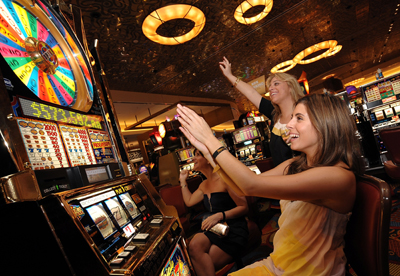
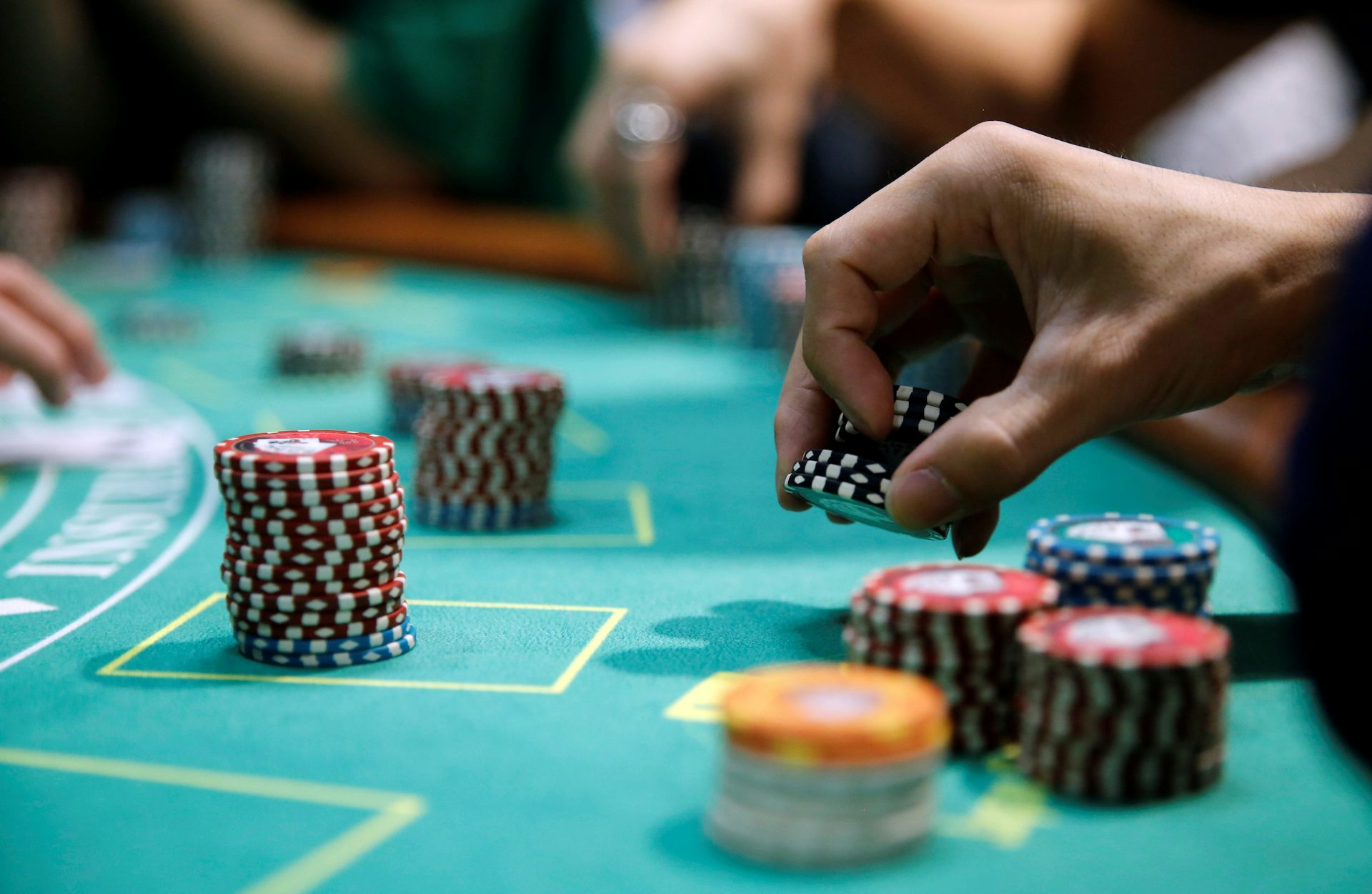
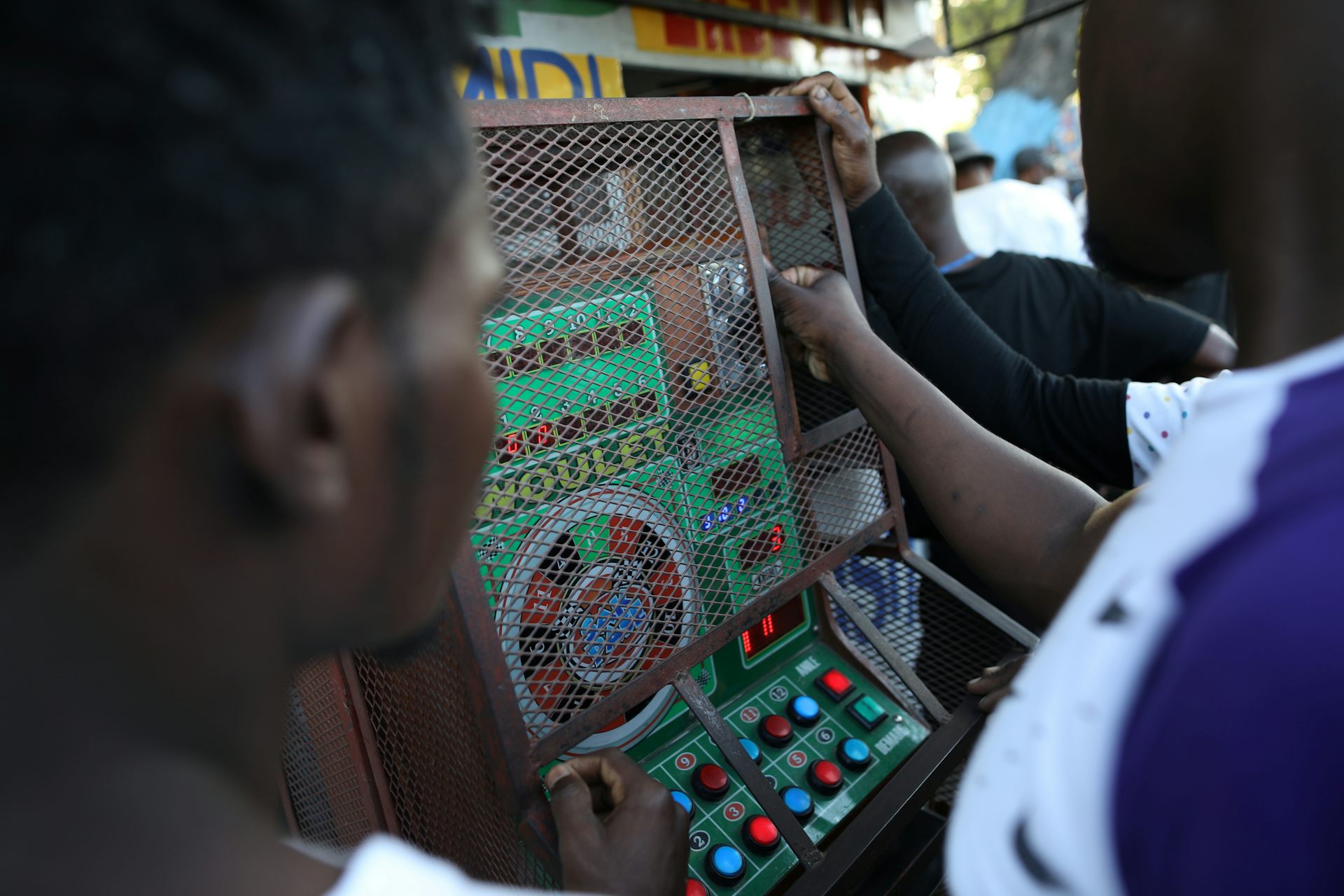


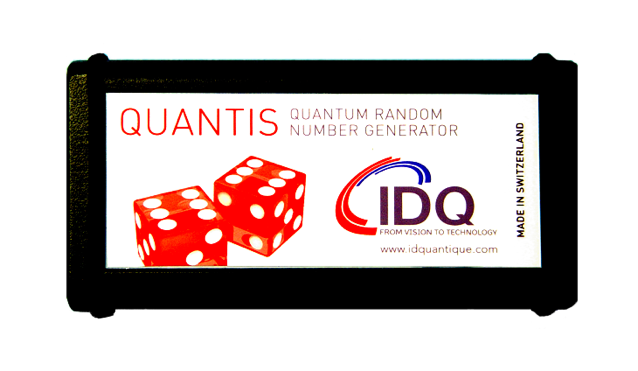

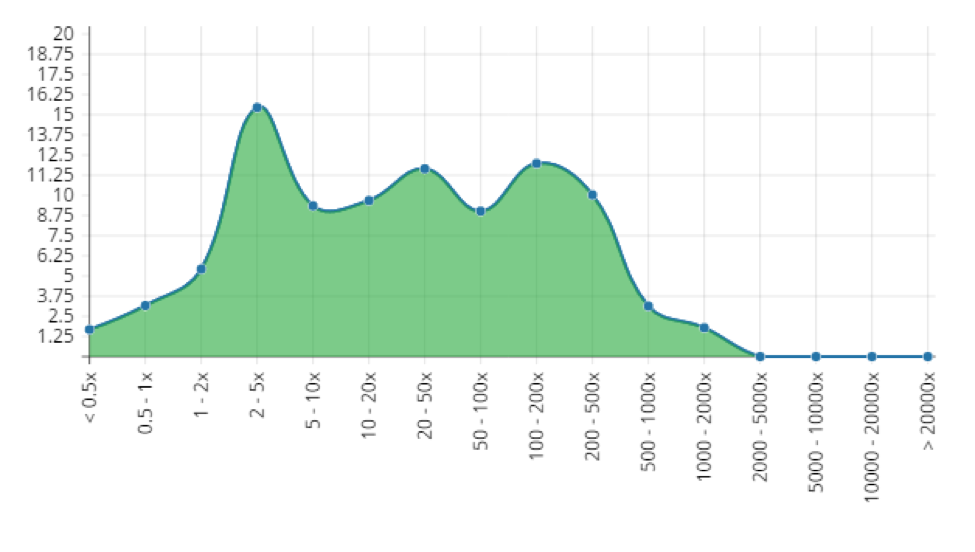



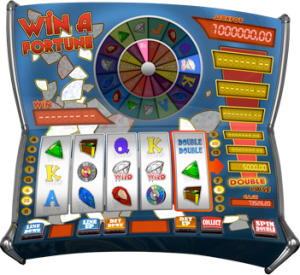

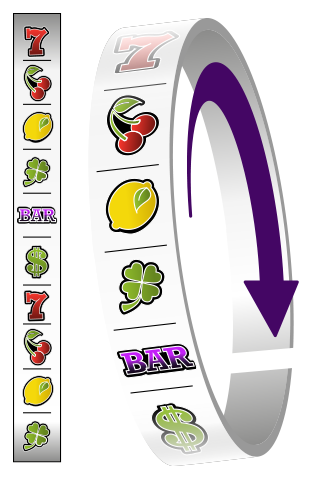
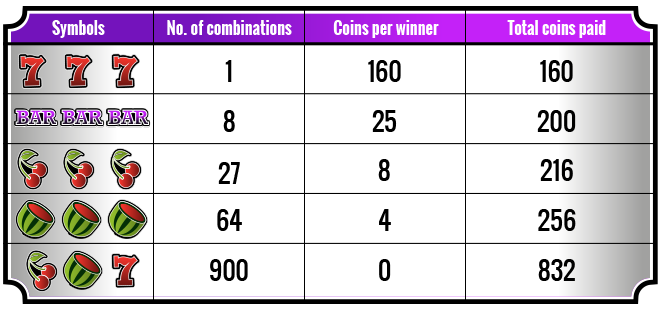
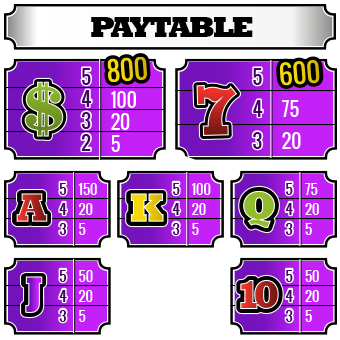
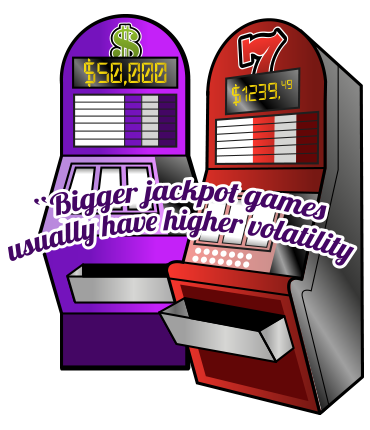

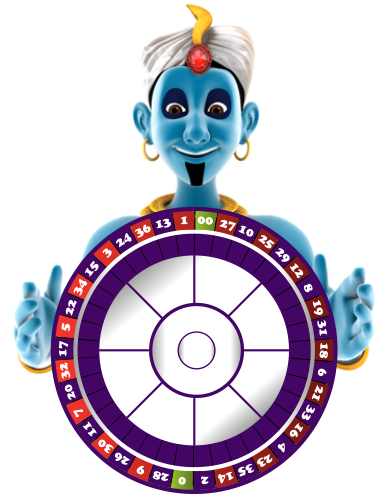



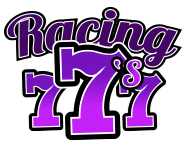

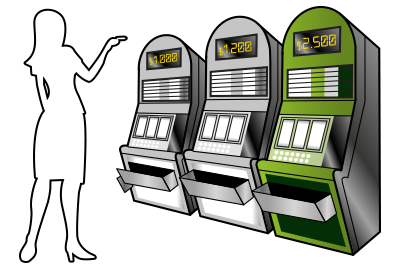

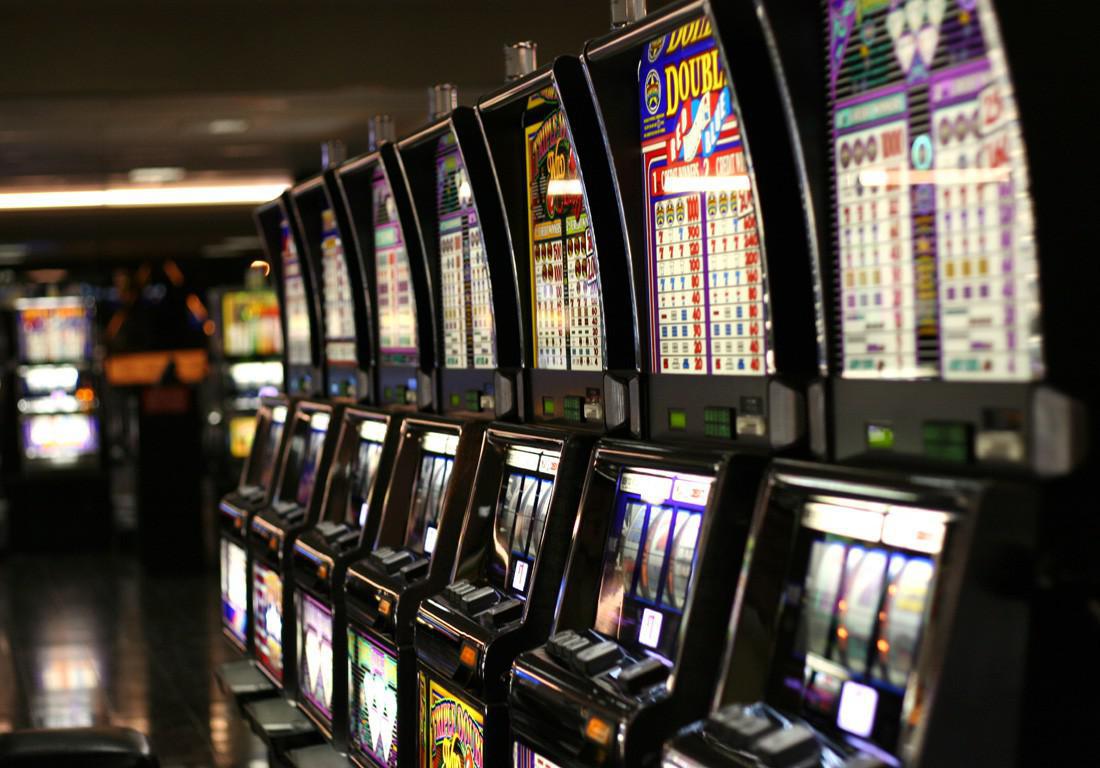





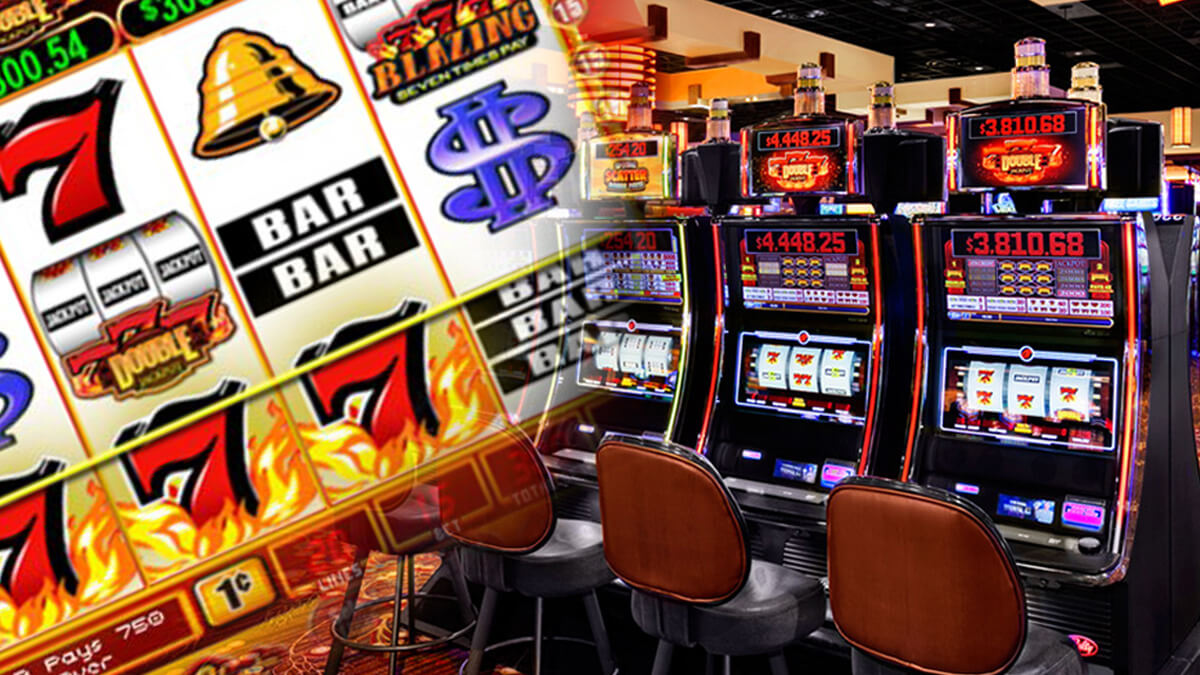
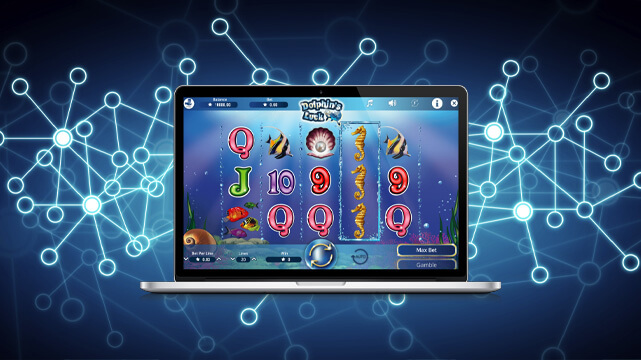

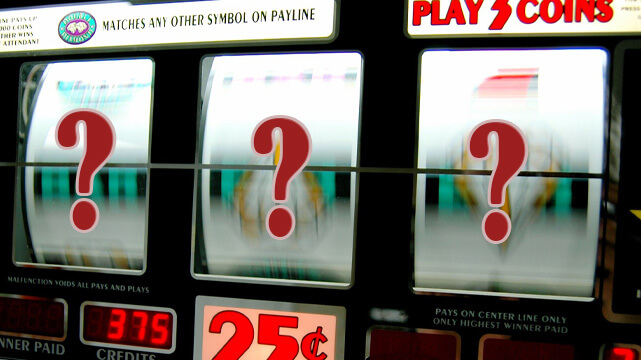
No comments:
Post a Comment